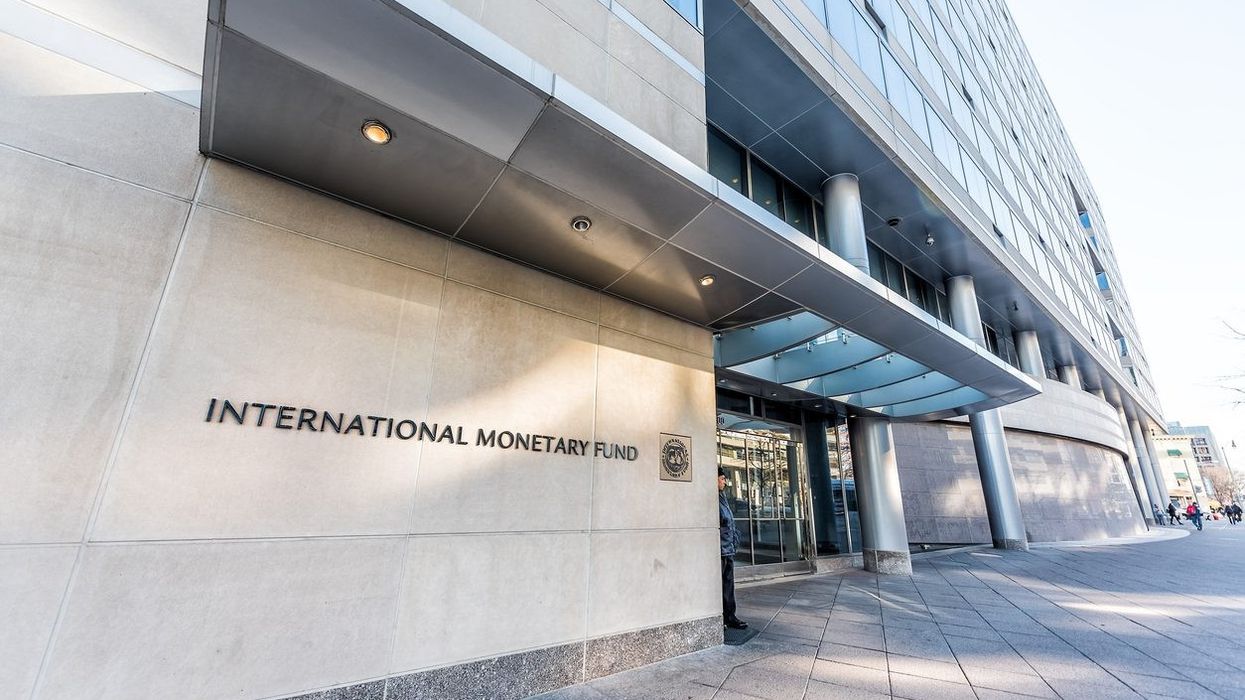The IMF has expressed its displeasure with Pakistan's claim that it had achieved all the targets even before the global lender could complete its review.
A team from the International Monetary Fund has reached Islamabad to hold talks before releasing the much-needed final $1.1 billion tranche of a $3 billion bailout package which was agreed last year.
According to media reports, the IMF Mission chief Nathan Porter and his colleagues expressed their displeasure that the finance ministry had announced its verdict before the completion of the review process under the $3 billion Standby Arrangement (SBA) programme, which they had just started and would come up with their prescriptions only after analysing the official data of various sectors of the national economy.
Earlier, the finance ministry announced that they had met all the structural benchmarks, and quantitative and indicative targets before getting any feedback from the IMF.
The IMF review mission grilled the finance ministry team in the first session of the review talks and everyone seemed clueless about how to respond, The News International reported.
However, Finance Minister Aurangzeb took the stance that he had taken note of it and such an episode would never be repeated in the future.
Pakistan and the IMF kick-started parleys for the completion of the second review and striking an agreement on the Memorandum of Economic and Financial Policies (MEFP) after which the release of the last tranche of $1.1 billion will be presented before the Fund's Executive Board in the second week of April 2024.
“The possibility of any mini budget cannot be ruled out at the moment, so the IMF may come up with prescriptions of raising rates of different taxes, especially General Sales Tax (GST) to fetch additional revenues on an instant basis. It will only become affirmative if the Federal Board of Revenue (FBR) faces any shortfall in achieving the tax collection target of Rs 879 billion for March 2024,” top official sources confirmed while talking to the newspaper on Thursday.
The IMF team also asked about the possibility of achieving the target for the last quarter (April-June) to meet the desired annual tax collection target of Rs 9,415 billion. The team enquired about the exact timeframe for unveiling the simplified tax scheme for retailers and the political will of the incumbent regime.
The FBR officials were not able to reply.
The IMF also held crucial talks with energy sector high-ups and asked them to come up with a plan to restrict the circular debt to avoid any further accumulation.
The Ministry of Energy officials said that they were withdrawing gas subsidies for fertiliser plants and wanted direction on cheaper fertiliser bags for farmers to reduce the input of the farm sector.
According to an official announcement made by the finance ministry on Thursday, an IMF mission called on Federal Minister for Finance and Revenue Muhammad Aurangzeb at the Ministry of Finance.
The mission is on a four-day visit to Pakistan to conduct the second review of the Stand-by Arrangement (SBA).
The finance minister welcomed the mission and expressed the government's commitment towards working with the IMF on the reform agenda for the economic growth and stability of Pakistan, according to the paper.
Aurangzeb aims to bring stability to a country plagued by crippling boom-bust cycles that have led to more than 20 IMF bailout programmes in the past.
Pakistan's debt-ridden economy, which shrank 0.2 per cent last year and is expected to grow around 2 per cent this year, has been under extreme stress with low reserves, a balance of payment crisis, inflation at 23 per cent, policy interest rates at 22 per cent and record local currency depreciation. (Agencies)




